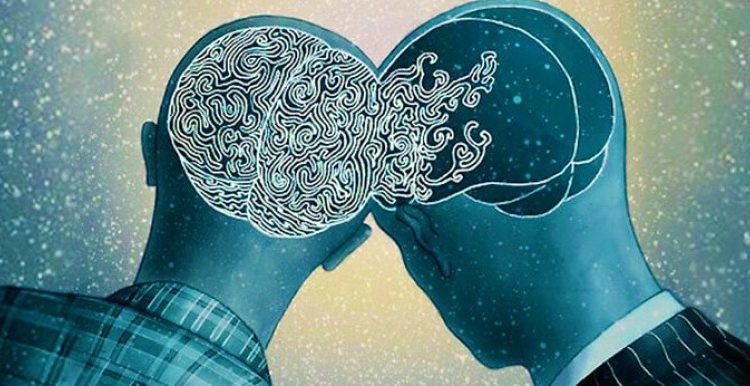The prejudice is aware but even if you know the wrong thing, you still go on
There are cognitive prejudices that even though you know it is wrong, your brain always follows the path and imposes them on others.
1. Thinking everyone knows what I know
Many of us believe that everyone will know what they know and for it to be obvious.

In an experiment, psychologists divided participants into two groups. A group makes "applause" and the other group "listeners".
The clapping team will clap to the rhythm of a song and the other team will be tasked with guessing the song. The first group thought that at least 50% of the rest would know the answer. But only 2.5% answered correctly.
The truth is that people who know more information unintentionally impose their thoughts on others, thinking that they must know the same thing as themselves. So their brains cannot see from the perspective of those who do not have that knowledge in mind.
2. Illusions about empathy

People tend to overestimate the ability of others to understand themselves.
You think another person will look at what you think or feel, maybe a worry and a lack of confidence when looking at you. But actually, almost everyone is not a psychic to read other people's thoughts.
3. Anything you want to keep
You must have kept a tight pair of shoes, or kept a shirt in the closet even if you never used it.

According to experts, this is the effect of ownership - described by Richard Thaler and Daniel Kahneman in the 1970s.
In psychology and economic behavior, the property effect is a hypothesis in which people assign greater value to an object just because they own it.
People assign greater value to an object just because they own them. Understand simply, when something is given to you, it is yours. And now someone wants you to leave them, feeling lost, bad is bad.
So if they were willing to sell their favorite items, they would sell for a higher price than when they bought them.
4. Self-agreement, rationalizing action

Many people have been in the situation after buying something expensive but it is a bit regretful not to use it.
But you always tend to find a reason to convince yourself that it is the right choice, and trust that it is extremely worthy of the money you spend.
Scientists named this phenomenon "Stockholm syndrome".
5. Trends to advocate for their views

Everyone went to find persuasive arguments to prove their opinions right. And this means that they often just remember the information selectively and prioritize things that are not in conflict with the existing view.
Therefore, right from the beginning - the brain has tended to find information, understand and remember them by prejudice.
- The 5 'facts' you've ever learned in school turned out to be completely wrong
- Typical misconceptions in life through scientific
- These images will make you think again before you want to go tattooing
- Be aware of the risk of cancer because of air conditioning
- We are all 'solving the need' in the wrong way
- How to use Ad-Aware 2007 Pro
- Interesting facts about the public tail
- Experiment to make other people feel their own
- People are aware that they have just died?
- Medical errors are unbelievable
- Why do we often go against other people's opinions?
- What happens when pumping wrong gasoline into oil-powered cars?
 'Fine laughs' - Scary and painful torture in ancient times
'Fine laughs' - Scary and painful torture in ancient times The sequence of numbers 142857 of the Egyptian pyramids is known as the strangest number in the world - Why?
The sequence of numbers 142857 of the Egyptian pyramids is known as the strangest number in the world - Why? History of the iron
History of the iron What is alum?
What is alum?